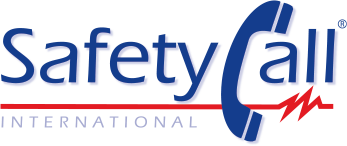Annie Asplen, Paramedic, MS
Medical Writer, Regulatory Assistant, Senior Information Specialist
Most of our work is done independently, with team members helping callers one-on-one. Because of this, it can be difficult for our agents to assess the quality of their own work, which is vital to continued improvement. That’s why our quality control (QC) program is in place to help our staff recognize their strengths, address their weaknesses, and make sure everyone stays on the same page.
Each month, senior staff choose at random a certain number of each team member’s cases to review, by reading through the case’s narrative and data fields, and listening to the call recording associated with the case. This allows the senior staff to score that agent’s call, based on a number of criteria in several different areas:
- Interaction with the caller
This area of quality control evaluates how the conversation is handled, from the pace of the talking to how well the exchange is controlled, and also the level of empathy that the agent shows the caller.
- Description of the event
Since each case is unique, it is necessary to have an explanation of what happened. The narrative section of the document is the agent’s chance to describe the caller’s exposure or questions in his or her own words, as well as the answers and advice given by the agent. In evaluating this part of the document, we look for clear and concise writing, thoroughness, and accuracy.
- Data entry
Our documentation tool has many fields to fill when it comes to entering data, which describe patient demographics, contact information, facts of the exposure, and product information. Some of these fields are pretty self-explanatory, while others need training and practice to use correctly. When we evaluate the way in which data is entered, we look for attention to detail to ensure that data is complete and accurate. If data is missing, there should be an explanation as to why in the case narrative.
- Information quality
Handling the cases that come through our call center requires extensive knowledge of our treatment guidelines, client expectations, and how to find the information we need (e.g. – safety data sheets, FAQ documents, etc). In this section, we evaluate how well team members use their knowledge and resources to give our callers the best answers to their questions and solid recommendations for managing their exposures. We also look for confirmation of the information given by the caller, which helps ensure that correct products are identified, and data necessary for official reporting is gathered.
Once case reviews are complete, agents receive scores and feedback on how they handled and documented their cases. They are then able to see where they are doing well, and how they can improve to meet and exceed SafetyCall’s high standards. We are happy to report that this method has led to a steady increase in QC scores, and continued growth in our training programs and service.
Annie has been with SafetyCall for 11 years. She loves her job and says she has never felt more appreciated by an employer. She is a licensed paramedic and also has her Master’s degree in professional and technical communication. In her free time, she loves hanging out with her 20 month old son, Wade.



